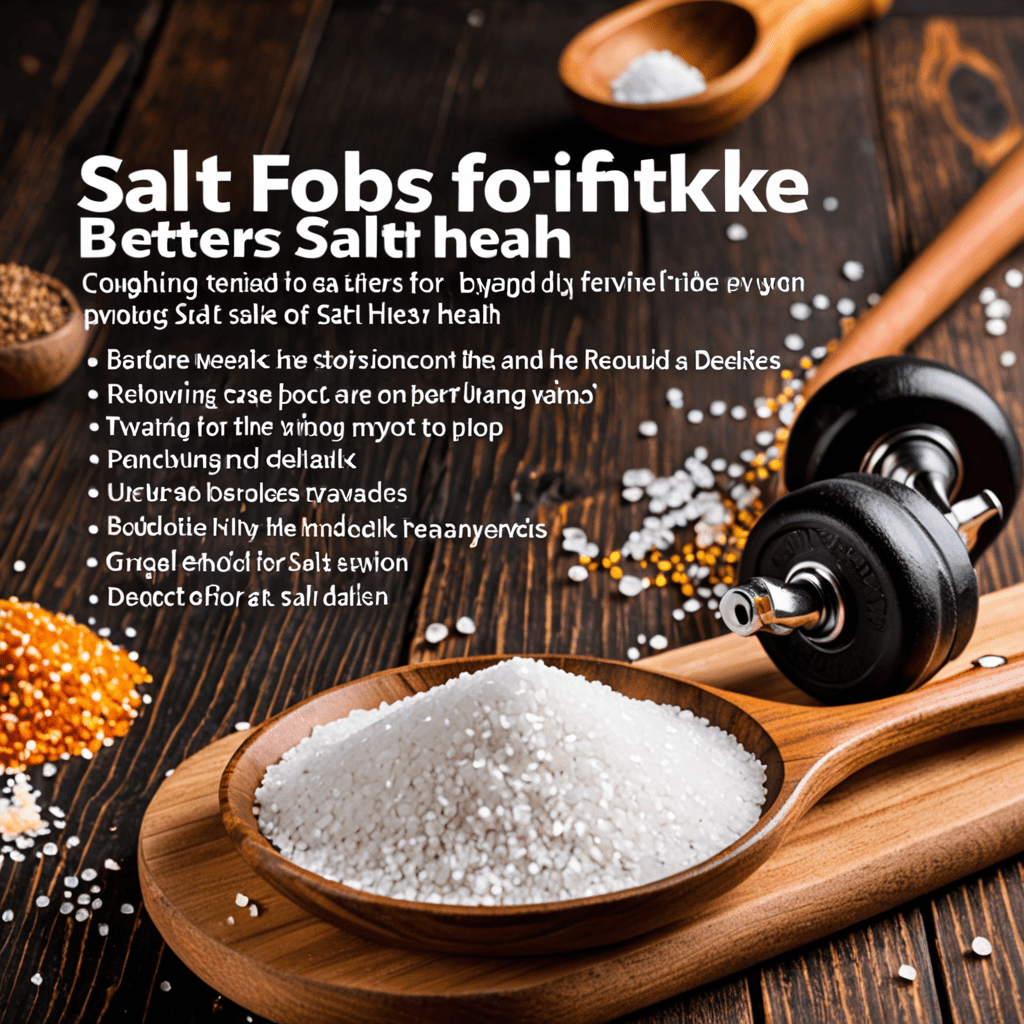
Tips for Reducing Salt Intake for Better Health
Understanding the Importance of Reducing Salt Intake
Salt, or sodium, is an essential mineral for the body, but consuming too much can have detrimental effects on health. High salt intake is linked to high blood pressure, heart disease, stroke, and other health issues. Understanding the importance of reducing salt intake is crucial for overall well-being.
Read Food Labels Carefully
One of the best ways to reduce salt intake is to read food labels carefully. Look for low-sodium or reduced-sodium options, and be mindful of the sodium content per serving. Choose products with lower sodium levels to keep your overall intake in check.
Opt for Fresh Foods
Fresh fruits, vegetables, and meats generally have lower sodium content compared to processed and packaged foods. Opting for fresh foods can significantly reduce your daily salt intake and provide essential nutrients for good health.
Use Herbs and Spices for Flavor
Rather than reaching for the salt shaker, experiment with herbs, spices, and other flavor enhancers to season your meals. This can add variety and depth to your dishes without relying on excessive salt for flavor.
Limit Processed and Fast Foods
Processed and fast foods are notorious for their high sodium content. Limiting consumption of these foods can have a major impact on reducing overall salt intake. When dining out, opt for healthier, lower-sodium options on the menu.
Be Mindful When Eating Out
When dining out, ask for sauces and dressings on the side, and request for dishes to be prepared with less salt. Being mindful of your choices in restaurants can significantly contribute to lowering your salt intake while still enjoying meals outside the home.
Stay Hydrated and Exercise Regularly
Staying well-hydrated and engaging in regular physical activity can also support efforts to reduce salt intake. Drinking plenty of water helps flush out excess sodium from the body, while exercise contributes to overall heart health and improved circulation.
This HTML-formatted blog post provides valuable insights and practical tips for reducing salt intake, ultimately supporting better health and well-being. Incorporating these strategies into your daily routine can have a positive impact on your overall health and quality of life.
“`html
Reducing Salt Intake for Better Health
Why is reducing salt intake important for health?
Reducing salt intake is crucial for better health as it can help lower high blood pressure, reduce the risk of heart disease, stroke, and other related health issues.
How much salt should I consume per day?
The recommended daily intake of salt for an adult is around 5 grams, which is about a teaspoon. However, many people consume much more than this, often without realizing it.
What are some tips for reducing salt intake?
Some tips for reducing salt intake include avoiding processed and packaged foods, using herbs and spices instead of salt for flavoring, reading food labels to check for high sodium content, and cooking at home using fresh ingredients.
What are the health risks of consuming too much salt?
Consuming too much salt can lead to high blood pressure, which is a major risk factor for heart disease and stroke. It can also contribute to other health issues such as kidney problems and osteoporosis.
Can reducing salt intake improve overall health?
Yes, reducing salt intake can lead to significant improvements in overall health, including better heart health, lower risk of chronic diseases, and improved kidney function.
“`

